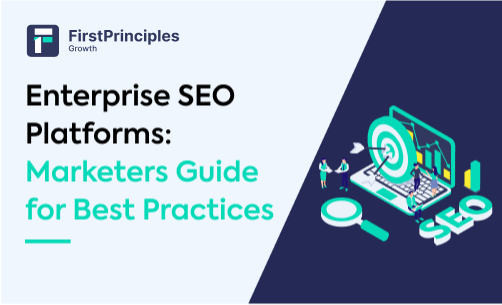
Home > Enterprise SEO Platforms: Marketers Guide for Best Practices
Table of Contents
ToggleA well-articulated search engine optimization holds significant importance for enterprise growth and boosting revenues. Improving SEO tactics impacts the discoverability of business. Also, the higher ranks on SERPs are the beguile avenue that demonstrates the site’s credibility among your target audience. Going by the data-backed facts, it is derived that 80% of consumers initiate their product research online, and 75% of the searchers click on the top three search results in the SERPs.[Source]
Furthermore, organic traffic derives 40% of revenue [Source]. Glancing at the data, it is evident that investing in SEO is a ‘magic wand’ for businesses, but choosing the right SEO platform is crucial to driving your desired result. Especially doing the enterprise level SEO requires preciseness and faux pass in selecting the right enterprise SEO platforms can be the boomerang!
Enterprise SEO requires advanced tactics to deal with the scale and complexity of more prominent brands. Shedding light on the crucial aspects, we have compiled this blog discussing the best practices for marketers using enterprise SEO platforms. Drill down the best methods for enterprise SEO & harness the power for your organization:
Marketers often hover over the cloud of confusion when it comes to managing search engine optimization for enterprise websites; most marketers have little idea where to start. Fortunately, this is a problem that’s easy to solve with enterprise SEO platforms.
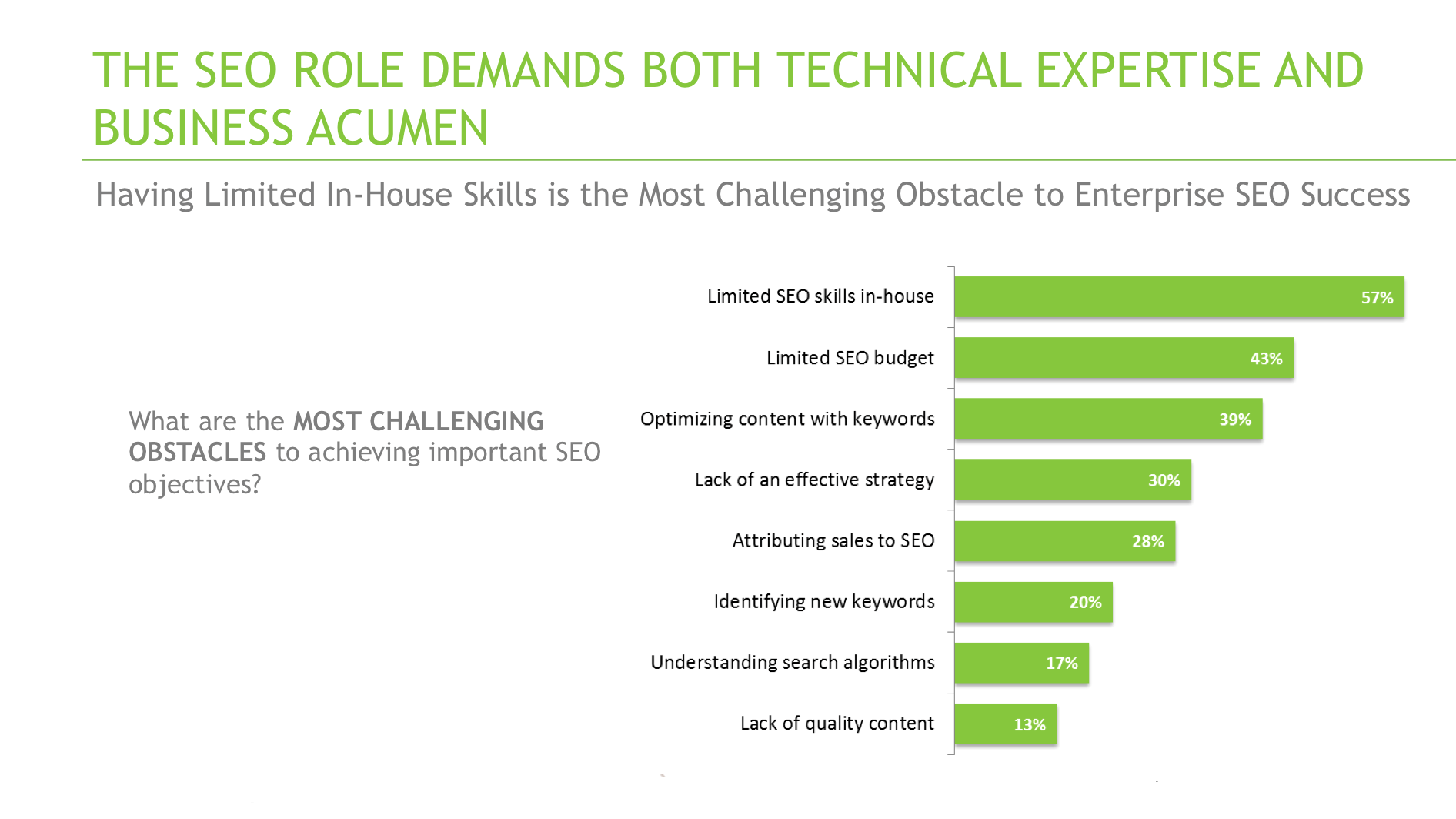
Image Source: [Conductor]
The positive news is that there is a wide range of countless enterprise SEO software solutions out there that make it smoother than ever before to succeed as a website marketer. With the SEO market being so competitive and Google constantly updating its algorithms, it’s not easy for marketers to reign on top of trends. As a result, many are turning to enterprise SEO platforms to streamline their process. These software suites help marketers view all content, managing site & analytics from one central location to make it easier to manage their digital marketing campaigns.
Enterprise SEO software platforms provide a comprehensive solution for optimizing a website for higher search engine rankings. They allow you to analyze your website’s current ranking, identify the best keywords for your website, and implement search engine optimization (SEO) techniques to improve your website’s visibility within the search engines.
The main features of enterprise SEO software platforms include:
Besides, enterprise-grade SEO platforms offer robust keyword research tools. The platform has optimization algorithms that consider a variety of factors, including competition, user behavior, and site content. You can avail yourself of support for a wide range of languages and currencies, making it easy to integrate your website into global markets.
In addition, it offers you comprehensive integrations with other online tools and platforms, such as email marketing, social media, and lead generation systems. And the robust security measures that protect your data from theft or unauthorized access.
These platforms have a global community of users who can provide valuable feedback and advice on improving site performance. And accessing the support is also easy with quality customer support if you encounter any problems or questions while using the platform.
Knowing what you’re looking for is the key to finding the right Enterprise SEO solutions. Besides, to boost your chance of appearing when potential customers perform online searches for your company name, services, or brand, you must implement enterprise SEO best practices within your organization while utilizing an SEO platform.
Let’s drill down the following point to explain the key SEO best practices for enterprises for a higher Google ranking for your company’s website and improve its overall digital presence:
Page speed is among the most critical SEO factors. Slow page speed affects your search engine results ranking, but it also has a negative impact on customer experience and clicks. Google has even released a report stating that slow pages are now the number one cause of user abandonment on mobile devices.
Without a doubt, SEO is critical for driving traffic to your website. But making sure your site runs quickly and smoothly can also play a significant role in boosting your SEO efforts using an enterprise-grade SEO platform.
A sluggish website can cause visitors to wait longer for pages to load, which can frustrate them and lead them to abandon your site altogether. Studies have shown that slow pages are responsible for as much as 40% of all lost website traffic.
A speedy website means better search engine rankings. Still, it can also improve user experience and encourage more people to stick around long enough to learn about your products or services. So leverage the benefits of enterprise SEO technology, and focus on page speed.
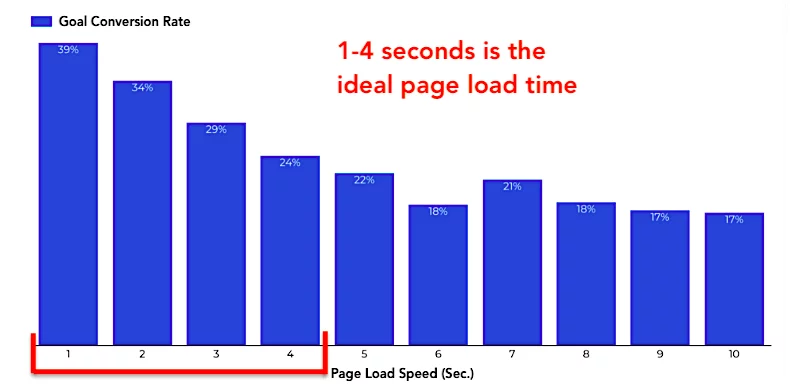
Image Source: [Single Grain]
Maintaining a content bank for bulk content as enterprise SEO best practice can benefit several reasons. As your website becomes more established, it may be time to update your existing content. Bulk content creation can expedite the process by providing you with a pool of high-quality, fresh content to use in your SEO efforts. Additionally, using a content bank can help you maintain consistency across your website. This will help to boost your search engine visibility and improve click-through rates.
A content bank provides a way for an enterprise to collect and store high-quality, reusable content for SEO purposes. This helps the enterprise cut down on the time and resources necessary to create new content. It also allows the enterprise to use previously written content as a foundation for writing unique content.
Using a content bank can help to save you time and resources by reducing the amount of work you have to do yourself. You can focus your efforts on creating new, unique content instead of duplicating what is already available on your website.
Automation also improves the accuracy and consistency of your SEO efforts, which leads to higher rankings and improved organic traffic. It further helps you to rapidly deploy targeted SEO strategies on a large number of pages.
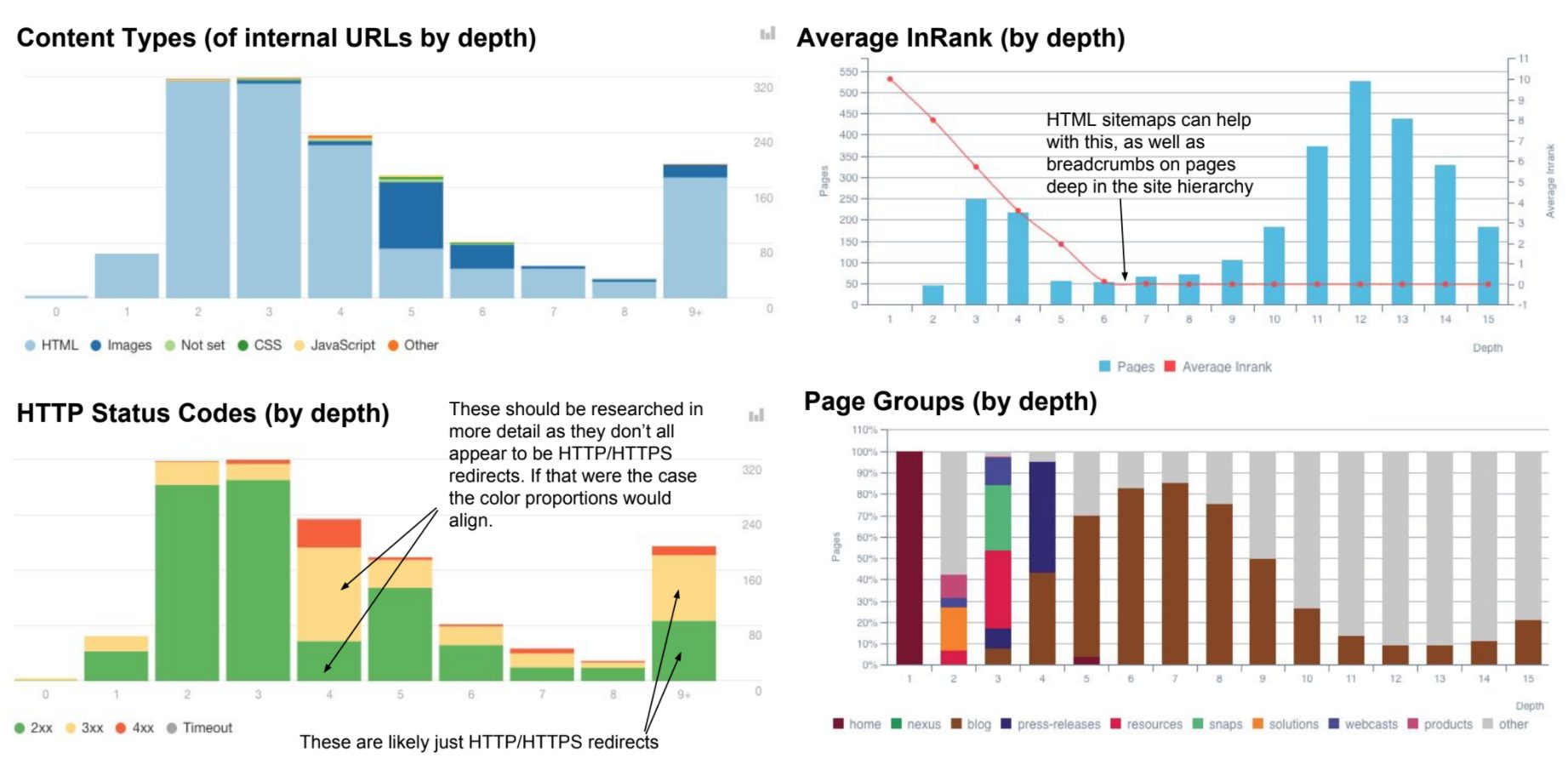
Image Source:[business2community.com]
Content clustering is the process of grouping together related content within a particular website or blog. By providing users with relevant and consistent information, content clustering can help improve the visibility of a site in SERPs.
By focusing on content clustering, enterprise SEO professionals can help ensure that potential customers more readily find their sites. In addition, content clustering can help to improve the overall user experience by reducing the amount of time required to navigate a site. Overall, it can help to boost online visibility and lead conversions.
It helps to organize your website content into clusters or groups that are more relevant to the keywords you are targeting. Doing this makes it easier for Google to find and rank your content properly. In addition, by focusing on keyword-rich content, you can help to improve SERPS visibility and gain an advantage over your competitors.
When visitors arrive on your website, they are likely to be more engaged and spend more time on your site if you have high-quality content relevant to their needs. This will ultimately lead to increased traffic and revenue.
Automating report tracking in enterprise SEO is essential for a successful SEO strategy. Tracking your search engine optimization (SEO) progress allows you to measure the impact of your efforts and make necessary changes as needed. Automated reporting allows you to track your progress over time to see how your SEO efforts are progressing; you can ensure that you are always up-to-date on your progress and making the effective use of your time and resources.
When it comes to online visibility, milliseconds matter; by automating your report tracking, you can increase your data collection speed and accuracy, resulting in better decisions being made on where to allocate your time and resources. With automated reporting, you can also focus on more important tasks while leaving the tedious tasks to the computer. It helps keep your data clean and organized as well.
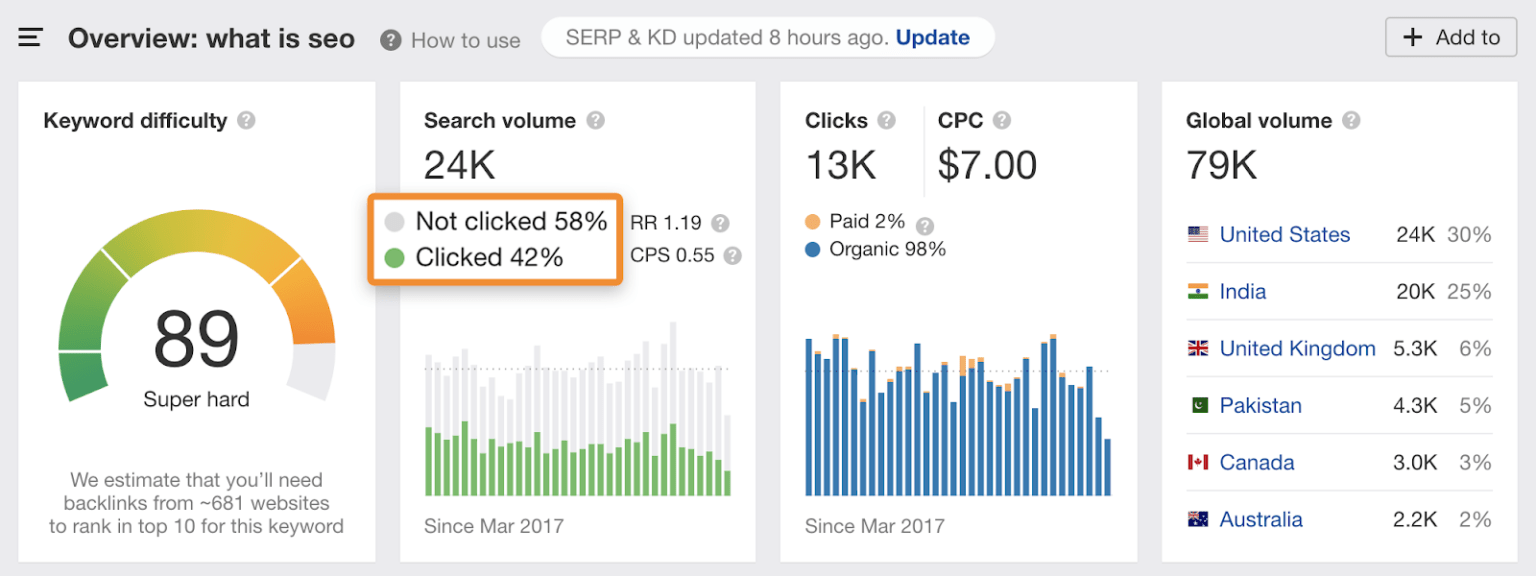
Image Source: [Ahrefs]
Using templates makes it easier to create well-designed and optimized pages for search engines. This can help your organization rank higher in the search engine results pages (SERPs) for relevant keywords.
Additionally, creating templates can save you time and money by minimizing the amount of work you have to do each time you create a new page. It also helps your team adhere to best practices when it comes to SEO. By following established guidelines, your organization can increase the chances of reaching your SEO goals.
You can also use page templates to make sure that all of your website’s content is consistent and well-organized. This will help you improve your website’s overall look and feel. You can also automatically generate thumbnails and metadata for your pages when you use templates. This will help improve the speed and accessibility of your website.
Keyword research is another most important aspect of SEO. Without it, your efforts will be in vain. It aids you in ranking well for your desired keywords.
An excellent way to start your keyword research is by using a tool like Google AdWords Keyword Planner. The tool helps you to drill down the insights on how many monthly searches your chosen keywords are generating and how much money you could be making if you were to invest in advertising on Google. After you have a good understanding of your target market, you can then start researching the best keywords for your business.
Notable that not all keywords are created equal. You should only invest in keywords that are likely to generate traffic and convert leads into customers. By doing keyword research regularly, you will be able to optimize your website for better search engine visibility and improved conversion rates.
For larger businesses, a more comprehensive approach may be necessary in order to identify the most relevant and profitable keywords. A few of the commonly used tools include Google Trends, SEMrush Keyword Tool, Moz Keyword Explorer, Google Autocomplete, etc.
Content gap analysis is essential in enterprise SEO because it helps identify and address any content deficiencies that may be impacting SEO performance. By identifying and addressing these deficiencies, you can improve your SEO efforts and ensure that your website is displaying the most relevant and up-to-date information to your target audience.
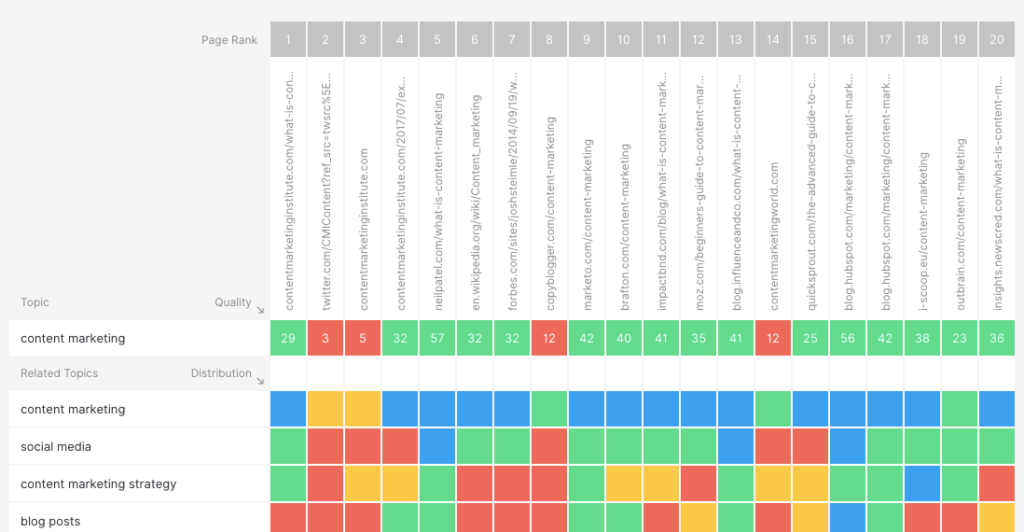
Image Source: [Market Muse]
In addition, content gap analysis can help you identify any potential issues with your website’s architecture or technical infrastructure. If you find that these issues are preventing your website from performing as well as it should, you can take corrective action to address them.
By addressing any content deficiencies that may be impacting SEO performance, you can improve your website’s overall ranking position. This will likely result in increased traffic and increased revenue.
Content gap analysis is an essential practice that enterprise SEO professionals should routinely use in their efforts to improve site performance. Understanding which topics are popular with your target audience and what type of content typically performs well in search engines, you can create a strategy that targets those topics and provides the kind of information your visitors need.
Enterprise SEO is unique. Usually, they have a robust website that requires a laser-focused concentration and efficacy to optimize the site. Besides, it further requires top-notch collaboration, automation, and a dedicated expert team to sustain in the cut-edge competition in the digital spectrum.
Enterprise requires a unique enterprise SEO technology to meet their needs and requirements. Whether you have a multiple domain business or a Fortune 500 company, the same SEO strategy won’t be rooted for you as would for an SMB, nor can you expect the same result.
Hence, comprehensive training for the team in enterprise SEO is essential for the success of enterprise SEO management and analytics. The team should be well-versed in the latest techniques and tools to help them achieve the desired results. This will help the team improve their individual SEO efforts, but it will also give the business a competitive edge helping to attract top Google rankings. Comprehensive training can also ensure that all team members are working towards the same goal, which will help to foster a unified approach to SEO.
There are a number of different types of training that can be offered to the team, depending on the company’s specific needs. Some examples of these types of training include online courses, classroom sessions, and in-house workshops.
It is essential to choose the type of training that is most appropriate for the company’s needs and the team’s level of experience and expertise. Once a selection is made, it is vital to ensure that all team members are aware of the program’s dates and times so that they can make appropriate arrangements.
If you are cribbing for leveraging the Enterprises SEO, you can reach out to FirstPrinciples! The in-house SEO experts can help you to set your SEO strategy and deliver the services. To start with & to learn more, contact us today!
Pushkar Sinha is the Head of Digital Marketing at FirstPrinciples Growth Advisory. With 15+ years of expertise, he specializes in SEOfor European, American, and Indian markets, both in agency and in-house roles. His holistic skill set encompasses Google Ads, Affiliate Marketing, SEO, SEM, PPC, E-Commerce, and Project Management. Pushkar is...